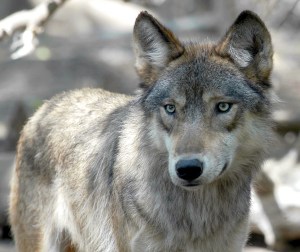AUGUSTA — Starting at 6 p.m. tonight, the U.S. Fish and Wildlife Service will hold an informational meeting on its proposal to delist the Western Great Lakes and Northeast populations of the gray wolf.
The service will then hold a public hearing from 7:30 top 9 p.m. to accept comments. Both meetings will be held at the Augusta Civic Center at 16 Cony St. in Augusta.
“Sportsmen and women, wolf advocates, conservationists, biologists and the general public will gather tonight to hear about and discuss the U.S. Fish and Wildlife Service’s proposal to eliminate federal protection for the gray wolf in the Western Great Lakes and the Northeast,” Meagan Racey, a spokeswoman for the service, said Wednesday in a press release.
“We will also announce the beginning of a review to see if federal protection needs to be extended to wolves dispersing into the Northeast from populations of a different wolf species,” Racey said.
She said the service will explain its proposal and answer questions during the informational meeting from 6 to 7:15 p.m.
On May 4, the service announced its proposal to remove Endangered Species Act protection for gray wolves in the Western Great Lakes Distinct Population Segment within the context of a National Wolf Strategy.
The service also proposed to revise the range of the gray wolf (the species C. lupus) by removing all or parts of 29 eastern states that it now recognizes were not part of the historical range of the gray wolf.
New information indicates that these areas should not have been included in the original listing of the gray wolf, the service website states.
In addition to proposing to delist the Western Great Lakes population of the gray wolf, the service proposes to recognize the eastern wolf, formerly a subspecies of the gray wolf, as a full species, Racey said.
Current science indicates that the eastern wolf — rather than the gray wolf — historically inhabited the Northeast, she said.
The service is also initiating a review of the eastern wolf throughout its range in the U.S. and Canada.
The eastern wolf is known to exist in eastern Canada and the Western Great Lakes region of the U.S.
“Though the service has confirmed occasional dispersing wolves from Canada, the Service has no evidence indicating the presence of a wolf population in the Northeast,” Racey said.
The service is seeking information from governmental agencies, Native American tribes, the scientific community, industry, and other interested parties on threats, population size and trends, and other factors that could affect the long-term survival of the Western Great Lakes population of the gray wolf.
The Service also seeks information on the status of the eastern wolf.
For more information, contact Mark McCollough in the service’s Maine Field Office at 866-3344. Additional information is also available at www.fws.gov/midwest/wolf.

Comments are no longer available on this story